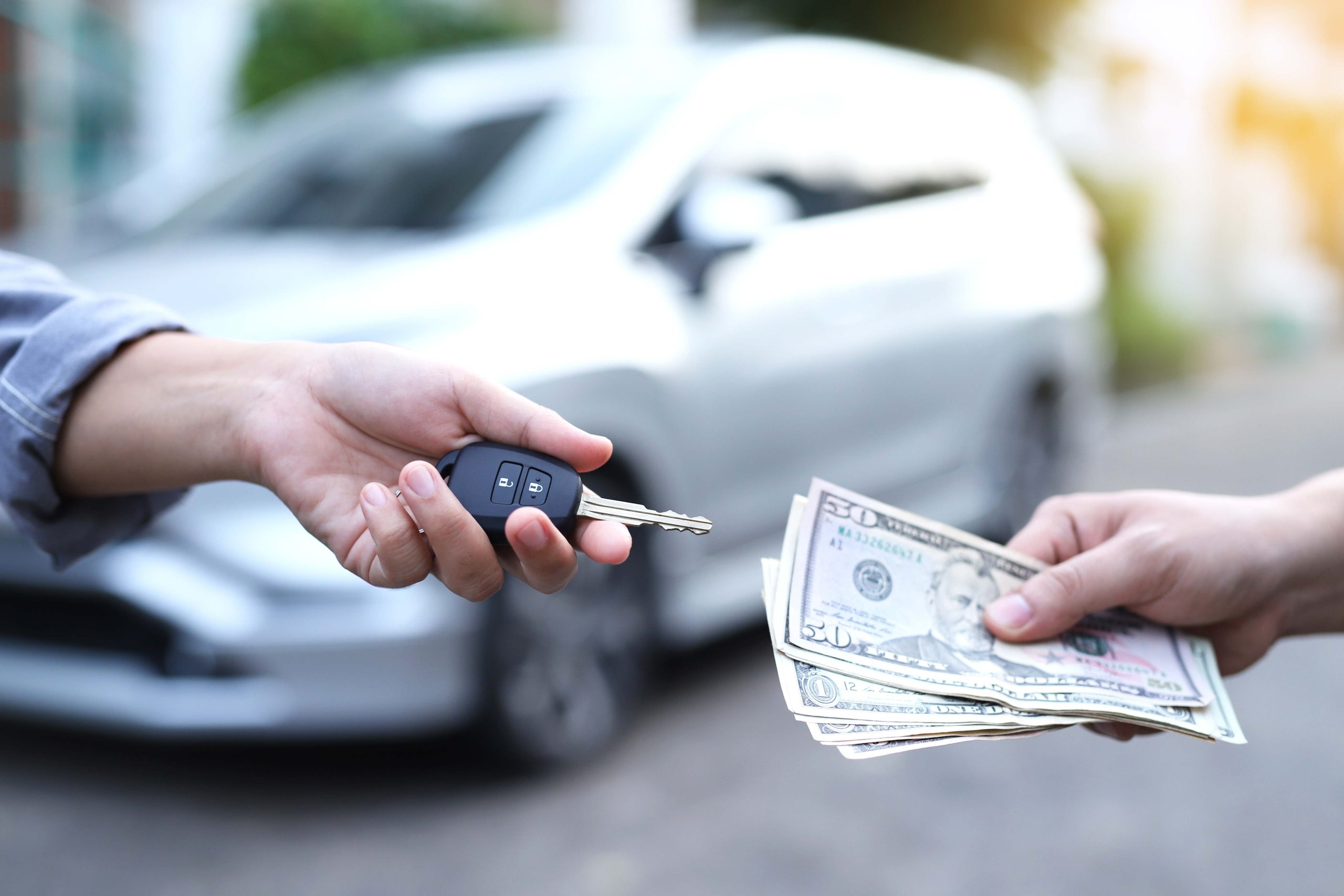In times of financial need, securing quick cash can be crucial. One often-overlooked option is pawning your car. Unlike selling your vehicle outright, pawning allows you to use your car as collateral for a loan while retaining ownership, provided you repay the loan according to the terms. This process can provide a much-needed financial lifeline without the permanent loss of a valuable asset. Understanding the nuances of car pawning, from evaluating your vehicle’s worth to navigating the pawning process, is essential for making informed decisions and maximizing the benefits of this financial option. This guide will walk you through the steps to successfully pawn your car for quick cash.
Understanding the Basics of Pawning Your Car
Pawning your car can be a practical solution when you need quick access to cash but don’t want to part with your vehicle permanently. This option allows you to use your car as collateral for a loan, enabling you to retain ownership while securing the funds you need. However, it’s crucial to understand the fundamentals of the car pawning process to make an informed decision.
Introduction to Car Pawning
Car pawning involves taking your vehicle to a pawn shop or a specialized lender, where it is appraised to determine its value. Based on this appraisal, the pawn shop will offer you a loan amount, usually a percentage of the car’s appraised value. You leave your car with the pawn shop as collateral and receive the cash you need. The pawn shop holds onto your car until you repay the loan plus interest within the agreed period.
Key Differences Between Pawning and Selling
Pawning your car differs significantly from selling it. When you sell your car, you transfer ownership permanently and receive a one-time payment. In contrast, pawning allows you to obtain a loan while keeping the option to reclaim your vehicle upon repaying the loan. This distinction is crucial for those who need temporary financial relief but wish to retain their car for future use.
When and Why to Consider Pawning Your Car
Pawning your car can be a viable option in several scenarios:
- Emergency Expenses: When unexpected expenses arise, such as medical bills or urgent home repairs, pawning your car can provide the necessary funds quickly.
- Short-term Cash Flow Issues: If you are experiencing temporary cash flow problems but expect to recover financially soon, pawning your car offers a way to bridge the gap without selling your assets.
- Avoiding Long-term Financial Commitment: Unlike traditional loans that may involve lengthy repayment terms, pawning your car typically involves a shorter loan period, making it easier to manage and repay.
Understanding these basics will help you navigate the car pawning process more confidently and make a decision that aligns with your financial needs and goals.
Evaluating Your Car’s Value
Before pawning your car, it’s crucial to determine its current market value. The amount you can borrow against your vehicle depends on a thorough assessment of its worth, considering several key factors.
Factors That Determine the Pawn Value of a Car
- Make and Model: Certain makes and models retain their value better over time. Luxury and high-demand vehicles often yield higher loan amounts compared to standard or less popular models.
- Age of the Car: Newer cars typically have higher values. The depreciation rate slows down after a few years, but older cars generally offer lower loan amounts due to increased wear and tear.
- Mileage: Cars with lower mileage are considered more valuable. High mileage can significantly reduce the value of your car as it indicates more extensive use and potential for future repairs.
- Condition: The overall condition of your car plays a significant role in its valuation. Factors such as the state of the engine, transmission, tires, and bodywork, as well as the interior condition, are all taken into account.
- Market Demand: The current demand for your car’s make and model can influence its pawn value. Cars that are in high demand will typically fetch a higher loan amount.
How to Assess Your Car’s Condition
- Professional Appraisal: Obtain a professional appraisal from a trusted mechanic or appraisal service. This provides an unbiased assessment of your car’s value and helps in negotiations with the pawn shop.
- Online Valuation Tools: Use online resources like Kelley Blue Book or Edmunds to get an estimate of your car’s market value. These tools consider various factors such as make, model, year, mileage, and condition to provide a reliable valuation range.
- Maintenance Records: Keep comprehensive maintenance records. A well-documented service history can positively influence your car’s value, demonstrating that it has been well-maintained.
Importance of Professional Appraisals
A professional appraisal offers several benefits:
- Accurate Valuation: Professional appraisers provide a precise value based on an in-depth inspection, ensuring you get the most accurate loan amount.
- Credibility: Presenting a professional appraisal to the pawn shop can strengthen your negotiating position, as it shows you have a verified assessment of your car’s worth.
- Confidence: Knowing your car’s true value allows you to make informed decisions and avoid accepting undervalued offers from pawn shops.
By thoroughly evaluating your car’s value and understanding the factors that influence it, you can ensure you receive a fair and beneficial loan amount when pawning your vehicle.
Preparing Your Car for Pawning
Once you have a clear understanding of your car’s value, the next step is to prepare it for pawning. Proper preparation can enhance your vehicle’s appeal and potentially increase the loan amount you receive.
Necessary Documentation and Paperwork
- Proof of Ownership: Ensure you have the car title, as this proves you are the rightful owner. The pawn shop will require this to verify that the vehicle is free of liens and can be legally pawned.
- Identification: Bring a government-issued ID, such as a driver’s license or passport. This is necessary for the pawn shop to confirm your identity.
- Insurance and Registration: Having up-to-date insurance and registration documents can be beneficial. While not always required, they demonstrate that the car is legally compliant and well-maintained.
- Loan Documents: If there are any existing loans on the car, bring the related paperwork. This helps clarify the car’s financial status and ensures there are no hidden liabilities.
Cleaning and Minor Repairs
- Exterior Cleaning: Wash and wax your car to enhance its appearance. A clean, shiny exterior can create a positive impression and indicate that the vehicle is well cared for.
- Interior Cleaning: Vacuum the interior, clean the windows, and wipe down surfaces. Remove any personal items and ensure the car smells fresh. A tidy interior can significantly affect the perceived value of your car.
- Minor Repairs: Address minor issues such as replacing burnt-out bulbs, fixing small dents, or touching up paint scratches. These small fixes can improve your car’s overall condition and increase its value.
- Maintenance Check: Ensure that all fluid levels are topped up and that the tires are properly inflated. A well-maintained car is more likely to fetch a higher loan amount.
Gathering Maintenance Records
- Service History: Compile all maintenance records and receipts. A documented service history shows that the car has been regularly maintained, which can positively influence its valuation.
- Repair Records: Include any major repair records. This information provides insight into the car’s condition and reassures the pawn shop that major issues have been addressed.
- Warranty Information: If your car is still under warranty, bring the warranty documents. This adds value by indicating that any potential issues may be covered, reducing risk for the pawn shop.
Presentation Tips
- First Impressions: Presentation matters. Arriving with a clean, well-maintained car and organized paperwork can create a positive impression and set the stage for a successful negotiation.
- Transparency: Be honest about your car’s condition. Disclosing any known issues upfront can build trust with the pawn shop and facilitate a smoother transaction.
By thoroughly preparing your car, you can enhance its appeal and potentially secure a higher loan amount. Proper documentation, cleanliness, minor repairs, and maintenance records all contribute to presenting your vehicle in the best possible light.
Choosing a Reputable Pawn Shop
Selecting the right pawn shop is crucial to ensure you get a fair deal and secure a loan with reasonable terms. A reputable pawn shop will provide transparent, professional service, and safeguard your car during the loan period.
Researching and Comparing Pawn Shops
- Local Listings and Reviews: Start by compiling a list of local pawn shops. Use online resources like Google Maps, Yelp, and the Better Business Bureau (BBB) to find customer reviews and ratings. Pay attention to feedback about loan terms, customer service, and overall experiences.
- Experience and Specialization: Look for pawn shops with experience in handling car pawns specifically. Shops that frequently deal with vehicle loans are likely to offer more accurate appraisals and better terms.
- Licensing and Accreditation: Ensure the pawn shop is licensed and regulated by the appropriate local or state authorities. Accreditation from organizations like the National Pawnbrokers Association (NPA) can also be a good indicator of a reputable business.
Reading Reviews and Checking Licenses
- Customer Testimonials: Reviews from previous customers can provide valuable insights into the pawn shop’s reliability and professionalism. Look for consistent positive feedback and take note of any recurring complaints or issues.
- License Verification: Verify the pawn shop’s license with your state’s licensing board. This step ensures that the shop operates legally and adheres to industry regulations, providing you with added security and peace of mind.
- Complaints and Resolutions: Check if there have been any complaints filed against the pawn shop with consumer protection agencies or the BBB. See how the shop handled these complaints; a willingness to resolve issues professionally is a good sign.
Understanding the Terms and Conditions
- Loan Amount and Interest Rates: Compare the loan amounts and interest rates offered by different pawn shops. Be wary of excessively high interest rates and ensure that the terms are clearly explained.
- Repayment Terms: Understand the repayment schedule, including the loan term, payment frequency, and any penalties for late or missed payments. Ensure that the terms are reasonable and manageable within your financial situation.
- Fees and Additional Costs: Inquire about any additional fees, such as appraisal fees, storage fees, or insurance costs. Transparent pawn shops will disclose all potential charges upfront.
- Redemption Process: Clarify the process for reclaiming your car once the loan is repaid. Understand the timeline and any conditions that must be met to retrieve your vehicle.
Negotiation Tips
- Prepare Your Case: Use the research and appraisals you have gathered to justify your desired loan amount. Presenting evidence of your car’s value can strengthen your negotiating position.
- Be Confident: Approach negotiations confidently, knowing your car’s worth and the competitive offers available. Don’t be afraid to walk away if the terms don’t meet your expectations.
- Ask Questions: Don’t hesitate to ask detailed questions about the loan terms, fees, and conditions. A reputable pawn shop will be transparent and willing to explain everything clearly.
By carefully researching and selecting a reputable pawn shop, you can ensure a fair and secure transaction. Understanding the terms and conditions, reading reviews, and verifying licenses are essential steps to protect your interests and achieve the best possible outcome.
The Pawning Process and Getting Your Car Back
Understanding the step-by-step process of pawning your car and knowing how to reclaim it afterward is crucial for a smooth experience. Here’s a detailed guide to help you navigate this process effectively.
Step-by-Step Guide to the Pawning Process
- Initial Consultation: Visit the pawn shop with your car and all necessary documentation. Discuss your needs with the pawnbroker and provide details about your vehicle.
- Vehicle Appraisal: The pawn shop will conduct a thorough inspection of your car to determine its value. This may involve checking the exterior, interior, and mechanical condition, as well as reviewing your maintenance records and documentation.
- Loan Offer: Based on the appraisal, the pawnbroker will offer you a loan amount. This offer is typically a percentage of the car’s appraised value. Review the loan terms, including the interest rate, repayment schedule, and any additional fees.
- Agreement Signing: If you agree to the loan terms, you will sign a pawn agreement. This contract outlines all the conditions of the loan, including repayment terms and the consequences of defaulting.
- Vehicle Handover: You will leave your car with the pawn shop as collateral. The pawn shop will store your vehicle securely for the duration of the loan.
- Receive Funds: Once the paperwork is completed and the vehicle is handed over, you will receive the loan amount in cash or via electronic transfer.
Repayment Terms and Interest Rates
- Interest Rates: Understand that pawn loans typically have higher interest rates compared to traditional loans. These rates can vary significantly between pawn shops, so it’s essential to compare offers.
- Repayment Schedule: The loan term is usually short, ranging from 30 to 90 days. Some pawn shops may offer extensions, but this usually involves additional fees and interest.
- Payment Plan: Ensure that the repayment plan is clear and manageable. Some pawn shops may offer flexibility in payment schedules, allowing for partial payments over the loan term.
Tips for Reclaiming Your Car
- Timely Payments: Make your payments on time according to the agreed schedule. Missing payments can result in additional fees and could jeopardize your ability to reclaim your car.
- Communication: Stay in regular contact with the pawn shop. If you anticipate any issues with making a payment, inform them in advance to explore possible solutions or extensions.
- Full Repayment: Once you have repaid the loan amount, plus any interest and fees, you can reclaim your car. Ensure you get a receipt or confirmation of full payment.
- Final Inspection: Inspect your car thoroughly upon retrieval to ensure it is in the same condition as when you left it. Report any discrepancies immediately to the pawn shop.
Understanding Default Consequences
- Forfeiture of Vehicle: If you fail to repay the loan within the agreed terms and do not arrange an extension, the pawn shop has the right to sell your car to recover the loan amount.
- No Credit Impact: Defaulting on a pawn loan typically does not affect your credit score, as pawn shops do not report to credit bureaus. However, you will lose your vehicle, which could have a significant personal and financial impact.
- Legal Recourse: Review the pawn agreement for any clauses regarding legal recourse in case of disputes. Understanding your rights and the pawn shop’s obligations can help in resolving any issues that arise.
By following these steps and understanding the repayment process, you can ensure a smooth experience when pawning your car. Proper planning and communication with the pawn shop are key to reclaiming your vehicle and avoiding any potential pitfalls.
Conclusion
Pawning your car for quick cash can be a viable solution in times of financial need, offering a way to secure funds without permanently parting with your vehicle. By understanding the basics of car pawning, evaluating your car’s value accurately, preparing it properly, and choosing a reputable pawn shop, you can navigate this process with confidence and ensure you receive a fair deal.
Throughout this process, thorough preparation and informed decision-making are essential. By gathering all necessary documentation, maintaining your car’s condition, and conducting comprehensive research on pawn shops, you set yourself up for a successful transaction. Additionally, understanding the pawning process and the terms of the loan will help you manage your repayment effectively and reclaim your vehicle without complications.
Remember, while pawning your car can provide quick cash, it’s important to approach it with a clear understanding of the responsibilities and potential risks involved. By following the guidelines outlined in this article, you can make the most of this financial option and address your immediate needs while protecting your valuable asset.




